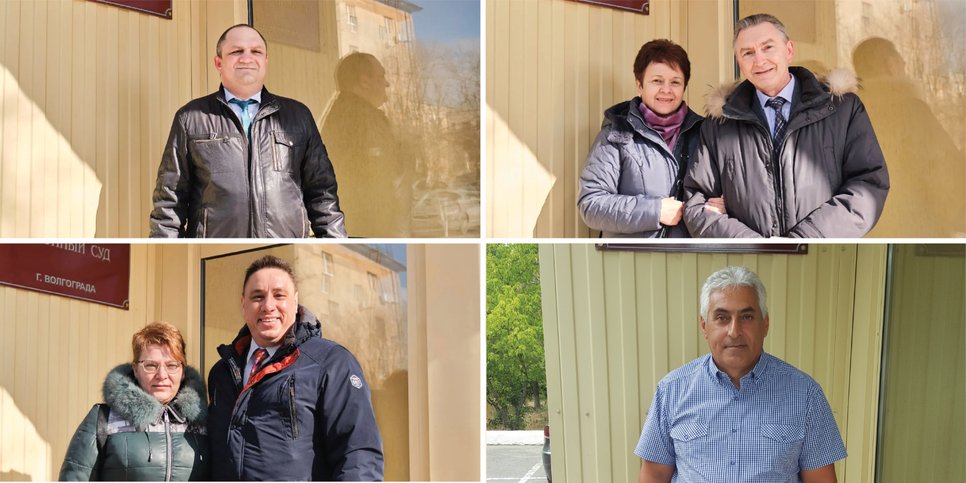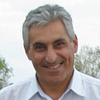In the photo: Denis Peresunko, Valery and Marina Rogozin, Sergey and Anna Melnik, Igor Egozaryan
In the photo: Denis Peresunko, Valery and Marina Rogozin, Sergey and Anna Melnik, Igor Egozaryan
An Appeal in Volgograd Upholds the Sentence of Four Jehovah's Witnesses
Volgograd RegionOn March 18, 2022, the Volgograd Regional Court upheld the conviction of Valeriy Rogozin, Igor Egozaryan, Denis Peresunko and Sergey Melnik. They will get jailed for their faith in Jehovah God.
In September 2021, the court of first instance sentenced Rogozin to 6 years and 5 months in a penal colony, Peresunko to 6 years and 3 months, and Melnik and Egozaryan to 6 years in a penal colony. The verdict has entered into force, but believers can appeal it in cassation.
When the criminal prosecution began, the wife of Denis Peresunko died of COVID-19, and the believer himself was placed in a pre-trial detention center for 5 months. He is on disability and the resulting stress has exacerbated his condition. A long stay in the pre-trial detention center also seriously undermined the health of Valeriy Rogozin. Egozaryan and Melnik are raising their underage sons.
In 2019, law enforcement officers arrested four believers and accused them of organizing extremist activities, and later two of them — Peresunko and Rogozin — also of financing it. At the same time, recordings of religious meetings of Volgograd Jehovah's Witnesses, at which they discuss Bibles, sing songs and pray to God, were used as material evidence of their “guilt.”
In court, the prosecution interrogated classified witnesses. One of them kept a covert record of worship and stated that the unlawful activities of the defendants consisted in the fact that they "obey God." Another secret witness said that he had never heard threats, calls for violence or the overthrowing of power from the defendants. Some witnesses openly stated that their testimony had been falsified by the investigator.
The scheme, according to which Volgograd residents were convicted, is used by law enforcement agencies throughout Russia against peaceful believers. As in the Rogozin case, the indictments mention “propaganda of the cult of religious superiority of the teachings of Jehovah’s Witnesses” as evidence of extremism. However, human rights activists in Russia and abroad consider this approach to be erroneous and unconstitutional. In particular, back in 2017, Lyudmila Alekseyeva, a member of the Presidential Council of the Russian Federation for the development of civil society and human rights, noted with concern: “What believer does not consider his faith to be true? Jehovah's Witnesses is a church that has branches in many countries. They everywhere freely profess their faith and nowhere are they considered extremists. And we have Jehovah's Witnesses, as sincerely believing people, very exemplary citizens: hard-working, honestly treating their families, their children.”




